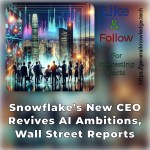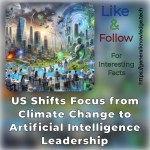The surge of **AI copyright lawsuits** in the United States signifies a transformative moment in **United States copyright law**. As we navigate this evolving landscape, it’s crucial to understand the legal challenges posed by AI technologies. These lawsuits, fueled by the **Copyright Crisis** associated with Generative AI, raise pivotal questions surrounding authorship and **intellectual property** rights.
## Understanding AI Copyright Lawsuits
At the core of the discussion surrounding **AI legal issues** is the concept of **AI copyright lawsuits**. These legal disputes arise when individuals or companies challenge the ownership or originality of content generated by artificial intelligence. High-profile cases, particularly in visual arts and music, have spotlighted how machines can replicate human creativity, leading to claims of **copyright infringement AI**. For example, a notable case involved an artist alleging that their work was appropriated by an AI model, illustrating the urgent need for clarity in **United States copyright law** regarding AI-generated materials.
## The Role of Generative AI in Copyright Law
Generative AI is reshaping our understanding of creativity, making it essential to explore its implications on **intellectual property** rights. Traditional **copyright laws** struggle to keep pace with advancements in AI, leading to complex questions about authorship. If an AI creates music, who holds the copyright? These questions are critical as we examine how AI influences the landscape of **copyright infringement AI**, impacting artists, developers, and lawmakers alike.
## Current Challenges in Copyright Law
The current state of **United States copyright law** reflects a significant gap in addressing **AI legal issues**. Recent **AI copyright lawsuits** have underscored the need for legal interpretations that accommodate new technologies. The visual representation of these lawsuits reveals their increasing prevalence, as judges often confront uncharted legal territory when determining cases of **copyright infringement AI**.
One of the major challenges facing the **Copyright Office** is the delayed report on artificial intelligence, now slated for 2025. This delay raises concerns about our ability to adapt copyright laws to the rapidly changing technological landscape. The uncertainty surrounding this report prolongs confusion about the legal implications of AI, affecting creators, tech companies, and legal professionals across diverse sectors.
## Future Implications of AI Copyright Lawsuits
As we look toward 2024 and 2025, several significant cases are poised to influence the trajectory of **United States copyright law**. The outcomes of these **AI copyright lawsuits** may establish critical precedents that either strengthen or weaken existing protections. Staying informed about these notable cases is vital for those involved in creative industries or **intellectual property** law.
The intersection of AI and copyright law presents an evolving set of challenges. Legal implications continue to shift as we explore the relationship between AI technologies and established legal standards. These changes have the potential to reshape how creative industries operate, redefining what it means to create in the digital age.
## Conclusion
In summary, the landscape of **AI copyright lawsuits** is rapidly evolving, presenting both challenges and opportunities in the realm of **intellectual property**. As developments unfold, continuous monitoring and adaptation are crucial for all stakeholders. The implications of AI on **copyright law** are profound, necessitating a robust dialogue to ensure that the rights of creators and innovators are preserved in an increasingly automated world.
For further readings and resources on **AI copyright lawsuits** and the ongoing evolution of **United States copyright law**, a wealth of materials is available to deepen your understanding of these pressing issues.
### FAQs on AI Copyright Lawsuits
**What is an AI Copyright Lawsuit?**
An AI Copyright Lawsuit refers to a legal dispute where individuals or companies contest the ownership or originality of creative works produced by artificial intelligence. These lawsuits often involve claims that AI-generated content has infringed upon existing works.
**Why are generative AI and copyright laws important?**
Generative AI is revolutionizing our perception of creativity and authorship. As AI generates music, images, and other forms of art, traditional copyright laws struggle to keep pace, raising critical questions about the ownership of AI-generated content.
**What challenges are present in current copyright law regarding AI?**
The existing copyright framework inadequately addresses the complexities introduced by AI-generated content. Recent **AI copyright lawsuits** have revealed significant gaps in the law, prompting courts to seek interpretations that align with emerging technologies.
**What is the role of the Copyright Office regarding AI copyright issues?**
The Copyright Office is set to address AI concerns in its upcoming report, expected in 2025. This delay means that crucial updates to copyright law may lag behind technological advancements, creating uncertainty for creators and tech companies.
**How might upcoming legal cases influence copyright laws?**
Significant cases scheduled for 2024 and 2025 could set important precedents in copyright law, influencing how legal standards evolve around AI-generated content and impacting creators and developers in the **intellectual property** field.
**What should creators and tech developers be aware of regarding these changes?**
– Monitor ongoing legal cases that may affect copyright protections.
– Stay informed about new AI regulations and their implications for ownership and authorship.
– Engage in discussions on navigating the evolving landscape of AI and copyright law.
**What resources are available for further understanding?**
Numerous resources discuss the implications of Generative AI in copyright law. Stakeholders are encouraged to explore these materials to stay updated on emerging issues and potential legal developments.






